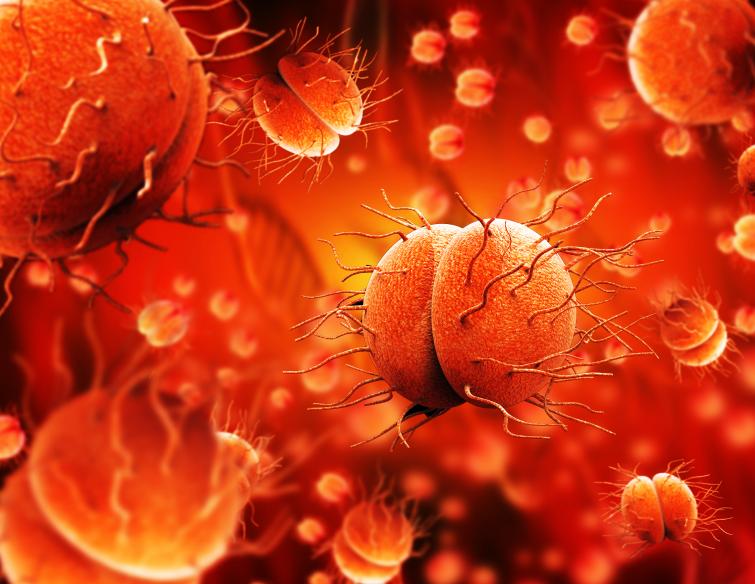
February 21, 2020
Bulletin interne de l'Institut Pasteur


Bacterial Achilles' heel discovered providing a new target for antimicrobial treatments
When a bacterium invades a host, it seeks to proliferate by multiplying. Bacterial cell division is coordinated by several mechanisms including the synthesis of peptidoglycan, a thick complex surrounding the cell. This synthesis is enabled by the action of a specific enzyme (lytic transglycosylase). Scientists from the Biology and Genetics of the Bacterial Cell Wall Unit at the Institut Pasteur have discovered a region of this enzyme that opens a chink in the bacterial armor when subjected to genetic interference. Thanks to the discovery, this enzyme can now be considered as a target for treatments against infections by causative agents.